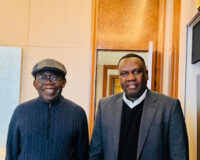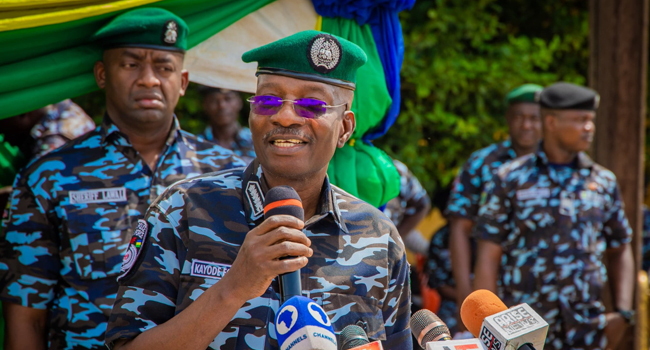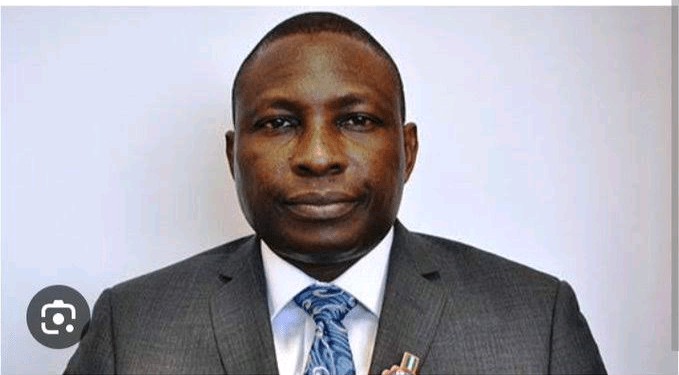Ukraine’s Chargé d’affaires to Nigeria, Bohdan Soltys, has asked Nigeria to boycott Russia to show that it disapproves of the former’s aggression on Ukraine.
He said this in an interview with PREMIUM TIMES.
“First of all, voting against Russia at any of the UN resolutions; stopping any cooperation with Russia. You know, the world should boycott Russia to show that they disapprove of Russia’s aggression against Ukraine,” Mr Soltys told PREMIUM TIMES in response to a question about what Nigeria and other countries can do to help stop the war.
Nigeria, Africa’s largest economy, has not considered boycotting Russia, a major trading partner for the West African nation.
Nigeria’s imports from Russia totalled $2.09 billion in 2021, according to the United Nations COMTRADE database on international trade. The major imports were mineral fuels, oils and distillation products ($1.42 billion); cereals ($296.64 million); fish, crustaceans, molluscs, and aquatic invertebrates ($219.48 million) amongst others.
In the same year, Russia’s imports from Nigeria totalled about $37.34 million. The main products were cocoa and cocoa preparations ($31.28 million); oil seed, oleaginous fruits, grain, seed and fruits ($4.01 million); coffee, tea, mate and spices ($882.14 thousand) amongst others.
Conversely, Nigeria’s imports from Ukraine in 2021 totalled $604.29 million, about a quarter that of Russia. The major imports were cereals ($491.90 million), iron and steel ($90.73 million), milling products, malt, starches and wheat gluten ($5.62 million) amongst others.
Also, Ukraine’s imports from Nigeria totalled $8.41 million. Major products were mineral fuels, oils and distillation products ($3.82 million); plastics ($2.23 million); oil seed, oleaginous fruits, grain, seed, and fruits ($1.20 million) amongst others.
Although Nigeria has no plans to boycott Russia, it has expressed its displeasure with the Russian invasion of Ukraine.
Nigeria at the first UN General Assembly resolution after Russia invaded Ukraine in February voted in favour of condemning Russia’s attack on Ukraine. It, however, abstained in the subsequent resolution seeking to temporarily suspend Russia from the UN Human Rights Council.
The call for Russia’s suspension was proposed by Linda Thomas-Greenfield, US ambassador to the UN.
Russia had warned countries at the UN that a yes vote or abstention on the US push to suspend the country from the Human Rights Council would be viewed as an “unfriendly gesture” with consequences for bilateral ties.
Despite Russia’s threat, the majority of African countries, including Nigeria, abstained.
In the interview with PREMIUM TIMES, Mr Soltys noted that although it would not be easy for countries to boycott Russia, the war on Ukraine sets a dangerous precedent that countries could attack others and get away with it.
“Well, nothing in this life is easy but as I said, this war creates a very dangerous precedent. If Russia gets away with this in Ukraine, then who will be the next victim and to whom, maybe not Russia but Nigeria could also be a victim,” he said.
The actions of Nigeria and many African countries since the Russia-Ukraine war have been interpreted to indicate neutrality.
Mr Soltys interprets this neutrality as condoning evil.
“I think neutrality means condoning evil,” he said. “This is how many African governments express their position. I want to say that if you do not condemn evil, you do not call what is black, black then you create a very bad precedent because you never know- the next time some other country will decide to attack Nigeria also and everybody will close their eyes saying we are neutral and we want peace.”
He, however, said that Africa’s neutrality will not hinder relations between Ukraine and Africa as both parties have a lot to offer each other.
“I believe that in the future, after the war, we will be able to continue mutually beneficial cooperation,” Mr Soltys said.







